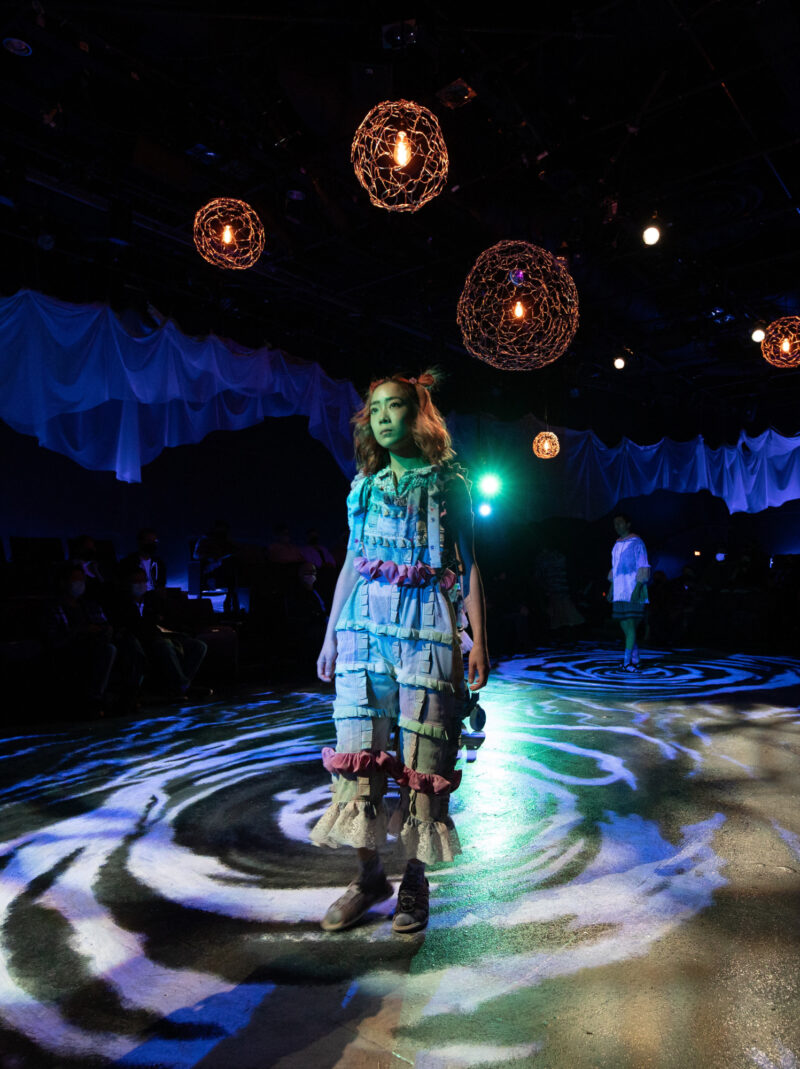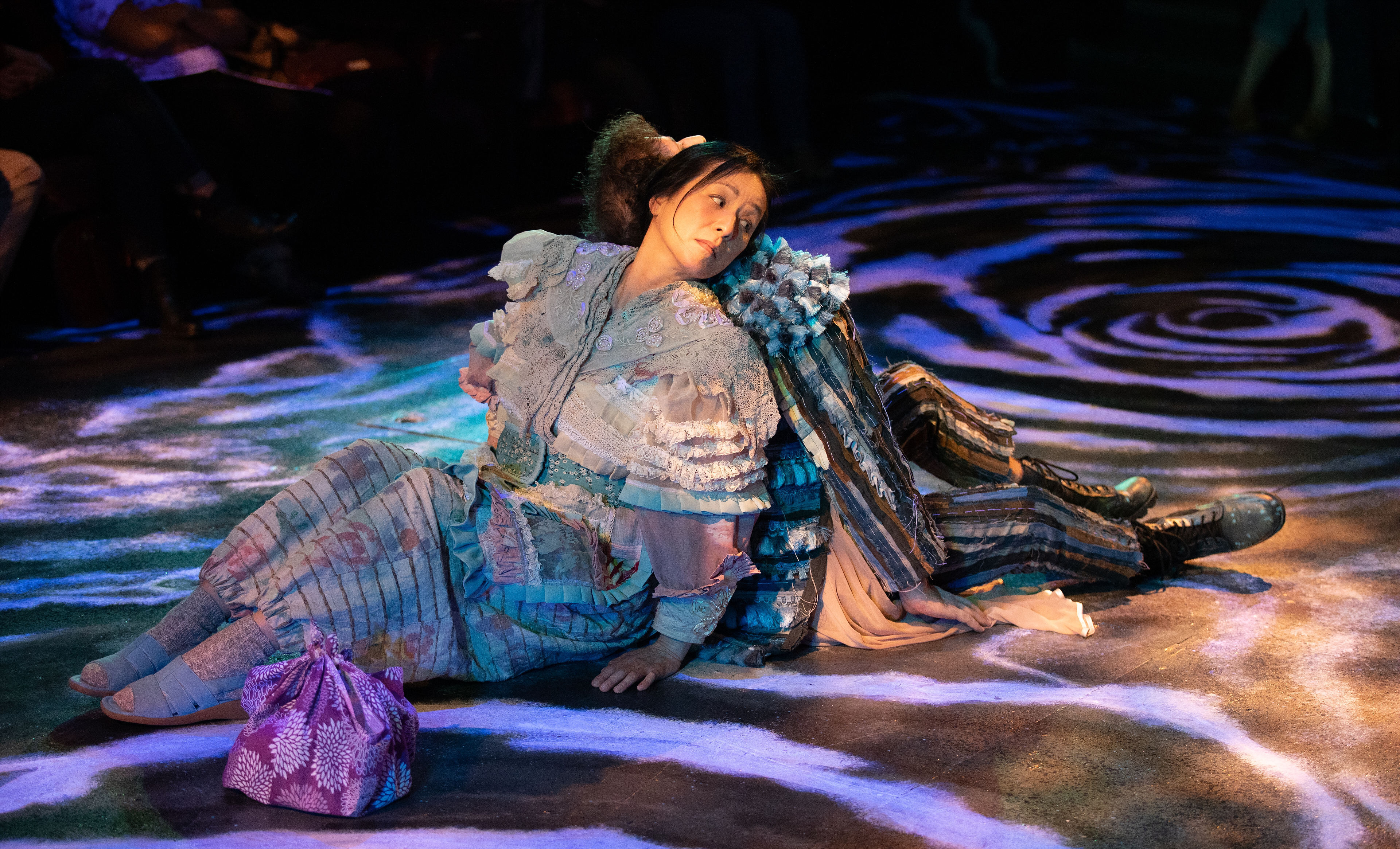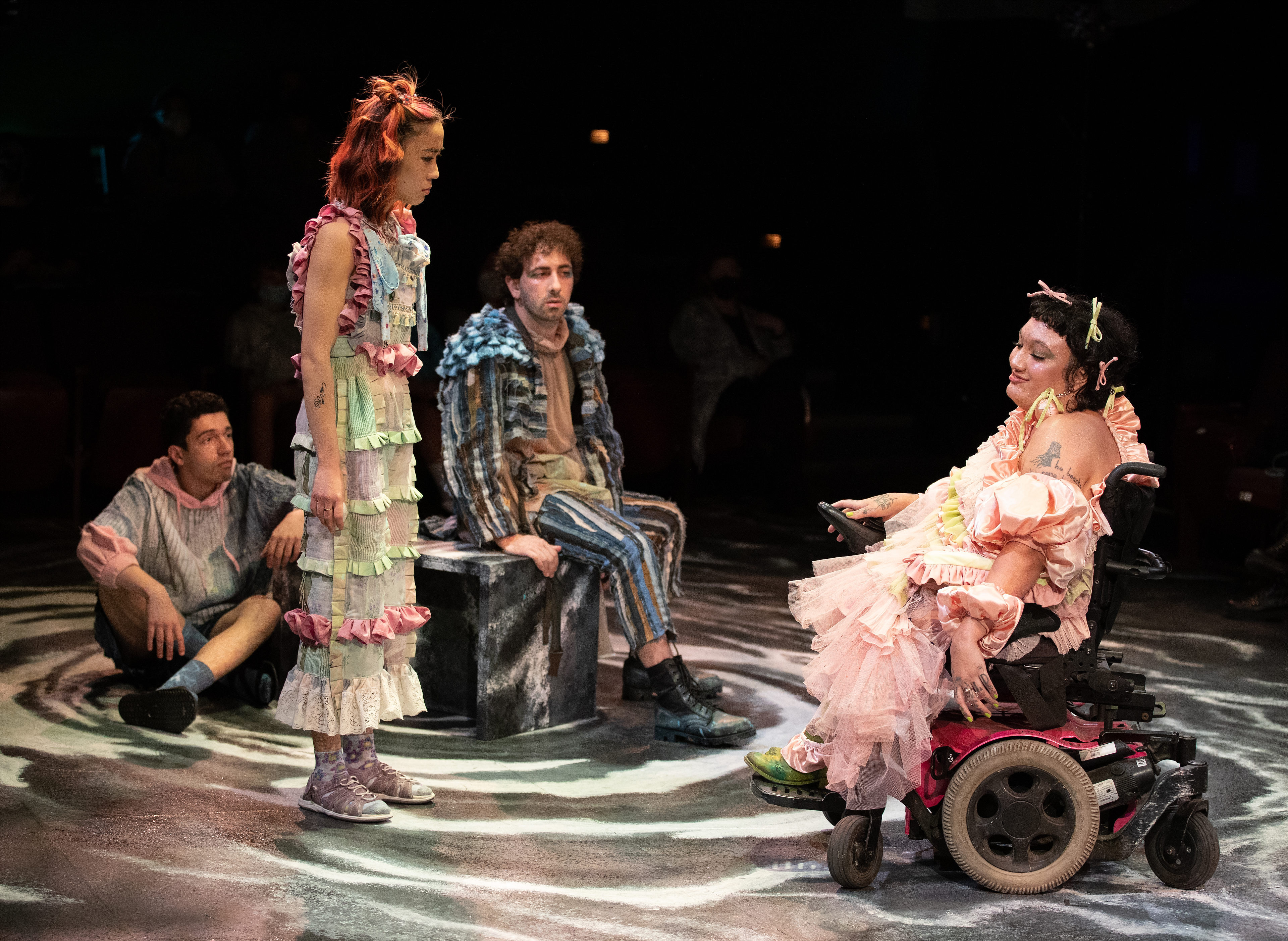miku, and the gods. is a Stunning Spoken Through Musical
Review of miku, and the gods. presented by ArtsWest
Written by Kyle Gerstel and edited by Teen Editor Esha Potharaju

I love the Seattle theater scene. We have a wide range of venues that specialize in vastly different types of theater. Hungry for a flashy musical? Go to The 5th and you won’t be disappointed. Interested in exploring more challenging work without sacrificing production value? Check out what’s playing at the Rep. However, there is no theater I know of with shows as surprising yet consistent as ArtsWest. From the delightful We’ve Battled Monsters Before to the disturbing Monsters of the American Cinema, the theater has presented some of the boldest, most intimate productions I’ve seen since quarantine ended, and the world premiere of miku, and the gods. may be my favorite of them all.
The spoken-through musical follows Miku, a 12-year-old girl of Japanese descent, as she pursues her dream of becoming a god. It feels inappropriate to call the show a play since its rhythmic pacing, choreography, and use of theatrical devices are more aligned with what I expect from a musical. Miku’s desire to become a god serves as a smart and relatable analogy for the struggles of tweenhood, but many of the other characters lack a clear objective. Nonetheless, I remained captivated for the entire show thanks to the performers’ energy, playwright Julia Izumi’s wonderful wonder-filled dialogue (antimetabole intended), and director Alyza DelPan Monley’s raw yet thoughtful staging.
A voiceover narrator outlines the story in moments, followed by motions, and finally, movement. The subdivision is arbitrary, but it allows Izumi to break the form as well. For instance, minor god Shara tries to enter the play multiple times, but the narrator humorously shuts him out. Eventually, he is given time in the spotlight, but the audience already has a sense of his character based on these previous interludes.

The play opens with a sequence combining spoken word, recorded rhythms, miming, and nightmarish movement reminiscent of “We Think We Know You,” the brilliant finale to Bo Burnham’s 2013 stand-up special what. Although such techniques are more often utilized in performance art than narrative theater, the format viscerally conveys more about Miku and her journey than any typical scene could.
The script features two twists, one of which feels undeserved while the other is genuinely surprising. Twists are strongest when they are introduced in the world of the film so that audience members can guess them but don’t. For example, in Brian De Palma’s 1996 spy film Mission: Impossible, the opening scene features protagonist Ethan Hunt utilizing a highly realistic mask in a spy operation. Therefore, a similar mask’s use in the film’s climax is unexpected but justified. In contrast to Mission: Impossible’s commendable execution, the play’s first twist is nearly impossible to put together, making it much less satisfying.
As for the show’s emotional core, the theme of grief is universal, but I did not find the script’s commentary on it particularly fresh or insightful: the One Who is Wise’s speech after the climactic movement sequence was too on-the-nose to be provocative.
In addition, I mistakenly thought that the play was ending multiple times after the monologue. In spite of this, the actual conclusion felt quite abrupt. The script could be stronger if the ending was updated in revisions, but I also think the show’s messiness makes it more exciting.

Izumi’s writing is complemented by the creative team’s similarly impressive work. Scenic designer Amiya Brown takes full advantage of the theater’s coziness: translucent white cloth is draped around the house, orbs are hung above the stage, and spirals cover the floor. This improves the atmosphere and immerses audiences in the show’s mystical setting, but I wish the actors interacted with these elements more. Playwright Anton Chekhov notably wrote, “One must never place a loaded rifle on the stage if it isn’t going to go off,” and in miku, and the gods., the space is chock-full of them, only a few of which actually participate in the action. Although Annie Liu’s lighting work is harder to pinpoint, it smoothly moves in synchronization with the sound and movement, quietly contributing to the storytelling experience.
Regardless of its flaws, miku, and the gods. is exactly the kind of theater I want to see more of: playful, relevant scripts with viscerally compelling, intensely theatrical staging. It is proof that a show does not have to be dull to be intelligent nor dumb to be escapist. It acknowledges struggle with honesty and thus with hope.
miku, and the gods. played at ArtsWest June 16-July 30, 2022.
Lead photo credit: miku and the gods. at ArtsWest. Photo by John McLellan.
The TeenTix Newsroom is a group of teen writers led by the Teen Editorial Staff. For each review, Newsroom writers work individually with a teen editor to polish their writing for publication. The Teen Editorial Staff is made up of 6 teens who curate the review portion of the TeenTix blog. More information about the Teen Editorial Staff can be found HERE.
The TeenTix Press Corps promotes critical thinking, communication, and information literacy through criticism and journalism practice for teens. For more information about the Press Corps program see HERE.


